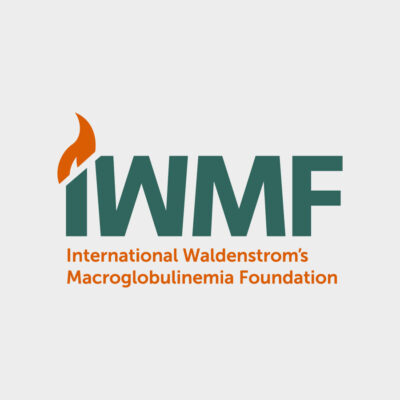More than 10 years ago, Steven Treon, MD, PhD, and his colleagues were the first scientists to discover that MYD88 mutations, which occur in more than 95% of patients with Waldenström’s macroglobulinemia (WM), rely on the BTK protein to function. This research led to Food and Drug Administration approval of ibrutinib, the first drug to specifically treat this slow-growing form of non-Hodgkin lymphoma.
With grants totaling more than $1.2 million from the International Waldenstrom’s Macroglobulinemia Foundation (IWMF), Treon and his colleagues from Dana-Farber’s Bing Center for Waldenström’s Macroglobulinemia are delving deeper into the biology and genetics of WM in hopes of developing new, more effective treatments for patients.
Treon, director of the Bing Center, is using an IWMF Legacy Grant to develop drugs called PROTACs that use the body’s own cellular disposal system to rid itself of proteins essential to the growth and survival of WM cells. One of the proteins Treon identified is HCK, a powerful survival signaling molecule that is turned on by MYD88. To identify possible HCK degraders, Treon and his team will use a new approach to drug development called chemoproteomics, which identifies potential compounds that bind to cancer-causing proteins and degrades them.
“In these studies, we will focus on drugs that directly hit and degrade HCK,” says Treon. “By doing so, we hope to broadly shut down the signal cascades that allow WM cells to grow and survive. We are grateful for the IWMF’s generous support of this important work.”
As part of the IWMF/LLS Strategic Research Roadmap Initiative, Zachary Hunter, PhD, the Bliss Family Investigator in Waldenström’s Macroglobulinemia, is studying novel isoforms—alternate forms of proteins that can perform related but often distinct biochemical functions—and tumor evolution in WM. Specifically, he will investigate how abnormal isoforms relate to the evolution of disease subtypes. Identifying these targets may lead to more personalized therapy approaches.
Maria Luisa Guerrera, MD, previously discovered that WNK2 is one of the top dysregulated genes in WM. With a Robert A. Kyle Career Development Award from IWMF, she will continue to study WNK2 to better understand the different ways WM cells improperly regulate the gene and how these changes affect WM cells’ behavior and growth. Her findings may lead to new treatment strategies that target altered forms of WNK2.
“All of us with the IWMF are extremely proud of our ongoing partnership with Dana-Farber’s Bing Center and the funding we have provided to support research conducted by Dr. Treon and his incredibly talented team,” said Newton Guerin, IWMF president and CEO. “Collectively, their work has resulted in scientific discovery that has led to more and better therapies for the global WM community.”.
For more stories about the impact of philanthropy at Dana-Farber, please visit DanaFarberImpact.org.



